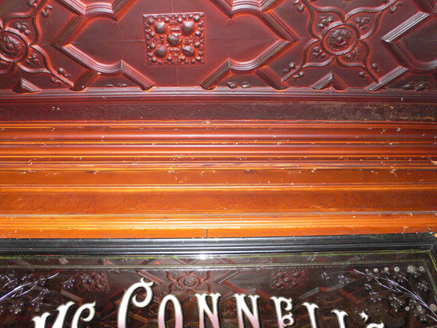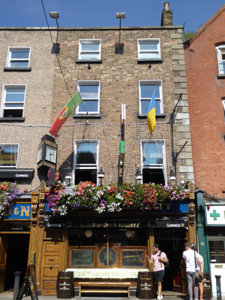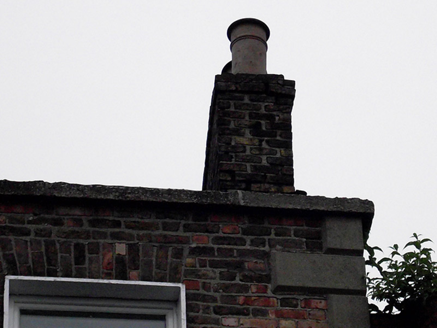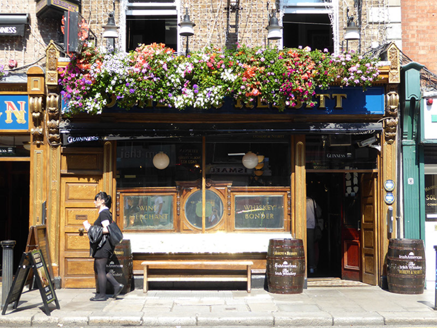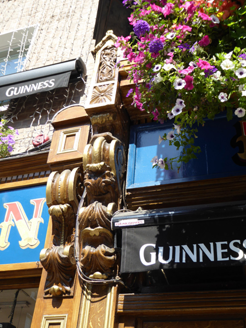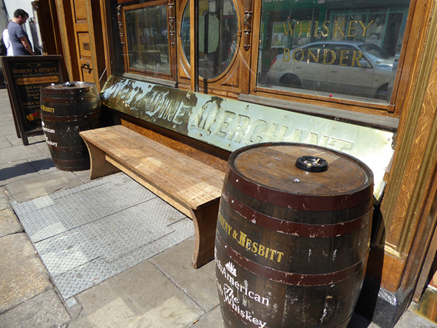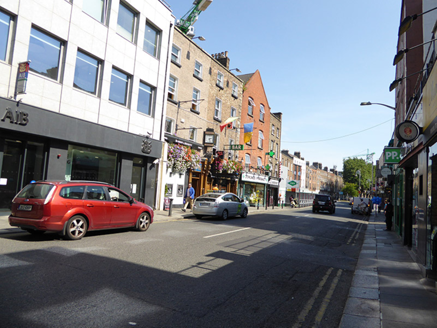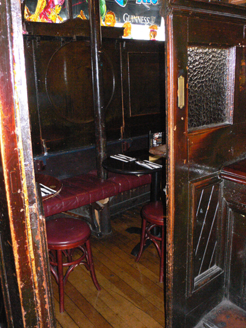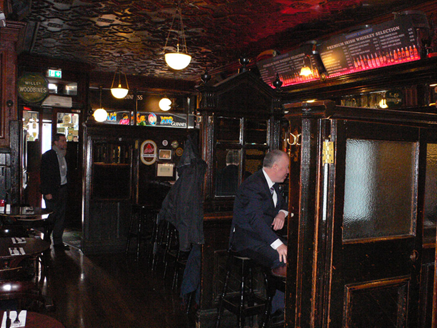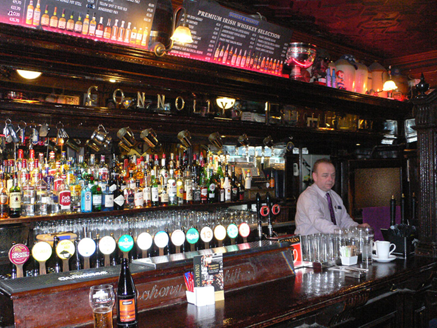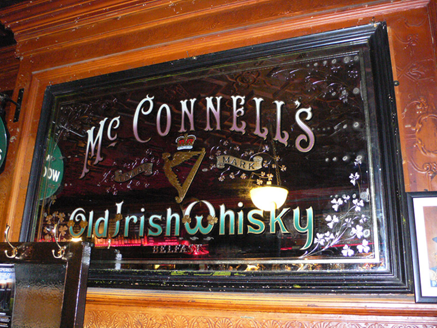Survey Data
Reg No
50100457
Rating
Regional
Categories of Special Interest
Architectural, Artistic, Social
Original Use
House
In Use As
Public house
Date
1780 - 1800
Coordinates
316429, 233375
Date Recorded
22/06/2016
Date Updated
--/--/--
Description
Attached two-bay four-storey former house, built c. 1790, with two-storey return to rear. Now in use as public house. Hipped roof, perpendicular to street, behind brick parapet with masonry coping and parapet gutters; brick chimneystack with terracotta pots, and further chimneystack to rear. Flemish bond brown brick walling, with rendered corner quoins at east end. Square-headed window openings, diminishing in height to upper floors, with patent reveals, painted masonry sills and brick voussoirs. One-over-one pane replacement timber sliding sash windows with ogee horns. Timber pubfront of c. 1890, having panelled pilasters over painted masonry plinth, oversize scrolled foliate consoles, ornate pediments, hand-painted fascia and dentillated cornice, with central bipartite timber display window and flanking square-headed door openings with timber panelled door and plain transoms. Decorative brass sheet set at angle to top of timber stall-riser, with low profile lettering 'Tea & Wine Merchant'. Interior has good Victorian bar, with carved timberwork to ceiling, snuga and bar area, and advertising mirrors.
Appraisal
Originally a house, later adapted for commercial use, Doheny & Nesbitt's is one of the city's finest Victorian public houses with a particularly good shopfront and interior with two snugs and original joinery. The shopfront, with its unusual brass sign to the stall-riser, accentuates the ground floor and adds a strong visual and craft interest. The licence has been held by several owners, originally as a pub / grocers. William Burke is recorded as the occupant of the premises in Shaw's Directory of 1850. He ran it as ‘Delahuntys’ for almost fifty years. In 1924, Philip Lynch and James O’Connor took it over for around thirty years, before passing it onto a Felix Connolly. Ned Doheny and Tom Nesbitt, two Co. Tipperary men, were the last owners before the present occupants. The building contributes to the historic character of this busy thoroughfare and, as a well-known public house, forms part of the social history of the city. Replica interior to rear extension.
